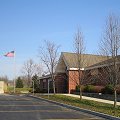- By Marcia E. Lynch
- News
 Print
Print  Passage of Anti-Solitary Confinement Legislation Urged
Passage of Anti-Solitary Confinement Legislation UrgedThe Legislature, by unanimous vote (Legislator Nate Shinagawa was excused) urged the New York State Assembly and Senate to pass The Humane Alternatives to Long-Term (HALT) Solitary Confinement Act, as recommended by the Legislature's Public Safety; Budget, Capital, and Personnel; and Workforce Diversity and Inclusion Committees. The HALT bill, as described in the resolution, essentially calls for the creation of alternatives to isolated confinement; states that no person may be held in isolated confinement more than 15 consecutive days, or 20 days total in any 60-day period; restricts criteria for placement in isolated confinement; and bans several special populations from isolated confinement.
Noting that a number of people in the community have been working on and proposing this, Budget/Personnel Chair Jim Dennis said, "It's time to do this…you have to do the right thing and pass this resolution." Legislator Mike Sigler, who supported the resolution, said before the vote that the legislation does not, and it not intended to address those in "super-max" incarceration facilities.




 Before the Legislature’s Public Safety Committee, Tompkins County Sheriff Ken Lansing and Undersheriff Brian Robison presented the detailed After-Action Report on the Barricading Incident at 127 Hornbrook Road in Danby—a two-and-a-half-day standoff that began the evening of December 30, when Sheriff’s officers attempted to serve a warrant on David Cady and ended the morning of January 2, when officers entered the home after Mr. Cady died of a self-inflicted gunshot wound.
Before the Legislature’s Public Safety Committee, Tompkins County Sheriff Ken Lansing and Undersheriff Brian Robison presented the detailed After-Action Report on the Barricading Incident at 127 Hornbrook Road in Danby—a two-and-a-half-day standoff that began the evening of December 30, when Sheriff’s officers attempted to serve a warrant on David Cady and ended the morning of January 2, when officers entered the home after Mr. Cady died of a self-inflicted gunshot wound. The Town of Lansing enacted a new law Wednesday that will require owners of new homes and older homes that have had work done requiring a building permit to display a label warning emergency responders that the structure has wooden trusses. The law was passed to conform to a new state law that requires new homes and homes with new additions to be labeled.
The Town of Lansing enacted a new law Wednesday that will require owners of new homes and older homes that have had work done requiring a building permit to display a label warning emergency responders that the structure has wooden trusses. The law was passed to conform to a new state law that requires new homes and homes with new additions to be labeled.  An unexpected discussion about funding equipment for Lansing's Highway and Parks and Recreation Departments earlier this month has resulted in $240,000 of equipment being funded. The Lansing Town Board agreed 4-0 Wednesday to authorize spending the money for a large ten-wheeler truck, used for plowing snow, and lawn mowing equipment. The vote was in response to a flap over the town's non-existant fund balance policy and urgent requests by the two departments. Supervisor Kathy Miller says a fund balance policy will assign money to department reserves every year and make equipment replacement simpler and automatic.
An unexpected discussion about funding equipment for Lansing's Highway and Parks and Recreation Departments earlier this month has resulted in $240,000 of equipment being funded. The Lansing Town Board agreed 4-0 Wednesday to authorize spending the money for a large ten-wheeler truck, used for plowing snow, and lawn mowing equipment. The vote was in response to a flap over the town's non-existant fund balance policy and urgent requests by the two departments. Supervisor Kathy Miller says a fund balance policy will assign money to department reserves every year and make equipment replacement simpler and automatic. The recent flap over whether new equipment would be funded to replace a damaged highway department truck and lawn mowing equipment has escalated the issue of whether or not Lansing should have a fund balance policy in place. What to do with Lansing's fund balance is only the latest of a string of issues that has split the board along political lines for the past six years.
The recent flap over whether new equipment would be funded to replace a damaged highway department truck and lawn mowing equipment has escalated the issue of whether or not Lansing should have a fund balance policy in place. What to do with Lansing's fund balance is only the latest of a string of issues that has split the board along political lines for the past six years. More than a dozen worried and angry residents of the Autumn Ridge development in the southwest part of the Town of Lansing came to Wednesday's Town Board meeting to find out what the Town has planned to prevent severe flooding that plagued the neighborhood in the past year's extreme weather. Some demanded that the Town fix the problem, but town officials, while wanting to help to some extent, questioned whether it is legal to spend all taxpayers' money to fix a problem on private property.
More than a dozen worried and angry residents of the Autumn Ridge development in the southwest part of the Town of Lansing came to Wednesday's Town Board meeting to find out what the Town has planned to prevent severe flooding that plagued the neighborhood in the past year's extreme weather. Some demanded that the Town fix the problem, but town officials, while wanting to help to some extent, questioned whether it is legal to spend all taxpayers' money to fix a problem on private property. 408,841 New York consumers selected or were automatically re-enrolled in quality, affordable health insurance coverage through the Health Insurance Marketplace as of Feb. 22, according to a report released Tuesday by the U.S. Department of Health and Human Services. Of the consumers with a Marketplace plan selection, 74 percent (300,498 people) qualified for financial assistance to help with the cost of monthly premiums.
408,841 New York consumers selected or were automatically re-enrolled in quality, affordable health insurance coverage through the Health Insurance Marketplace as of Feb. 22, according to a report released Tuesday by the U.S. Department of Health and Human Services. Of the consumers with a Marketplace plan selection, 74 percent (300,498 people) qualified for financial assistance to help with the cost of monthly premiums. The Cayuga Lake Watershed Intermunicipal Organization (IO) is teaming up with the Cayuga Lake Watershed Network (Network) and other collaborators to update the Cayuga Lake Watershed Restoration and Protection Plan (RPP).
The Cayuga Lake Watershed Intermunicipal Organization (IO) is teaming up with the Cayuga Lake Watershed Network (Network) and other collaborators to update the Cayuga Lake Watershed Restoration and Protection Plan (RPP). Governor Andrew Cuomo reached out to New Yorkers with an email two weeks ago to justify his plan to fix the state's 178 failing schools. If implemented schools defined as 'failing' for three consecutive years would be taken over either by a non-profit, another school district, or a turnaround expert would be put in charge of the school. The question is, would this initiative, like others that educators view as an onslaught by Albany on New York schools, harm school districts like Lansing's that are not failing? Cuomo doesn't address the impact on successful schools, but notes that more than 9 out of 10 students statewide in failing schools are minority or poor.
Governor Andrew Cuomo reached out to New Yorkers with an email two weeks ago to justify his plan to fix the state's 178 failing schools. If implemented schools defined as 'failing' for three consecutive years would be taken over either by a non-profit, another school district, or a turnaround expert would be put in charge of the school. The question is, would this initiative, like others that educators view as an onslaught by Albany on New York schools, harm school districts like Lansing's that are not failing? Cuomo doesn't address the impact on successful schools, but notes that more than 9 out of 10 students statewide in failing schools are minority or poor. When Business Administrator Mary June King reported on the state of the 2015-16 budget a few weeks ago she included what she characterized as instructional program growth of $290,000 value for net cost increase of $50,000. After years of cuts Lansing school administrators are advocating that modest program increases be approved.
When Business Administrator Mary June King reported on the state of the 2015-16 budget a few weeks ago she included what she characterized as instructional program growth of $290,000 value for net cost increase of $50,000. After years of cuts Lansing school administrators are advocating that modest program increases be approved. The state's efforts to limit Medicaid spending are showing measurable progress with annual growth at less than 2 percent. Still, state spending on Medicaid is projected to rise by nearly $700 million a year over the next four years and improving the quality of care for Medicaid patients remains a challenge after more than two decades of reform, according to a report released today by New York State Comptroller Thomas P. DiNapoli.
The state's efforts to limit Medicaid spending are showing measurable progress with annual growth at less than 2 percent. Still, state spending on Medicaid is projected to rise by nearly $700 million a year over the next four years and improving the quality of care for Medicaid patients remains a challenge after more than two decades of reform, according to a report released today by New York State Comptroller Thomas P. DiNapoli. Senator Mike Nozzolio, along with members of the Senate Republican Conference today unveiled the new "Grown in New York" multi-part plan to help meet consumers' demands for locally-grown food, support local farmers in their efforts to provide quality, fresh food, and strengthen rural communities.
Senator Mike Nozzolio, along with members of the Senate Republican Conference today unveiled the new "Grown in New York" multi-part plan to help meet consumers' demands for locally-grown food, support local farmers in their efforts to provide quality, fresh food, and strengthen rural communities.